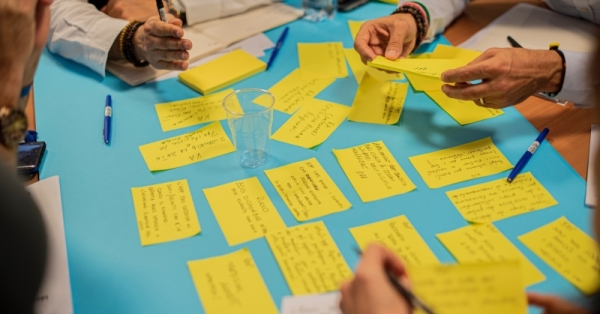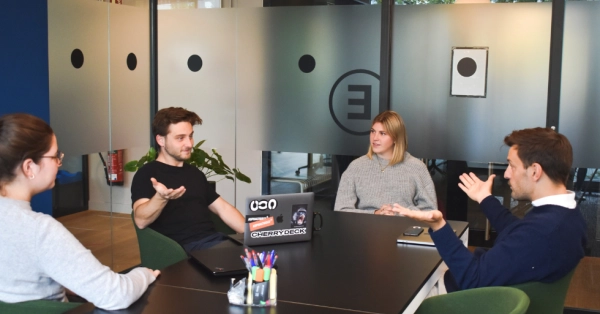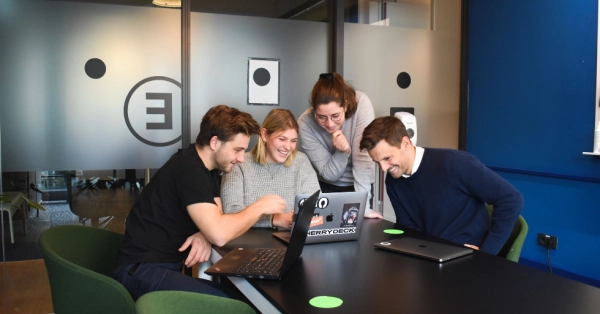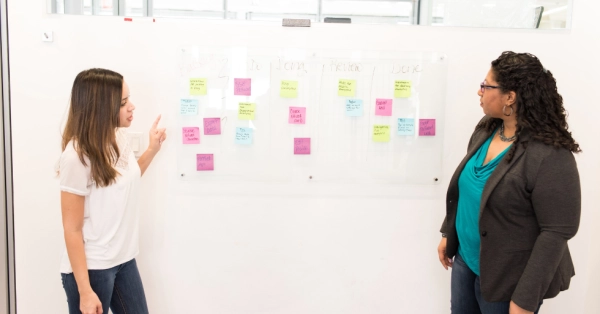In working with people, you have probably noticed that motivation stems from various sources, depending on the individual. Find out more about the particularities of motivation from Rareș Manolescu, coach and trainer, in the following material.

At a personal level, it's relatively easy to figure out what motivates you. But when working with people, you will see that people are motivated by different things and in different ways - some people mobilize more easily if they feel empowered, others if they feel supported and get an approval when they feel insecure, for example.
You've probably wondered at one point or another whether or not the people you work with are motivated. But the question you should actually ask yourself is "what motivates them?".
Good managers vs bad managers
What do you appreciate and what do you reject as an employee, what do you like and dislike about someone who leads you? I invite you to imagine how the members of your team would answer these questions. If you want, this can be a technique you use, and you can ask your team members the same thing. "Think about the worst manager you have ever had, who treated you in the most unfriendly way, and why you think he did it. Think about it and tell me what the words that best describe the manager’s behavior, more exactly what you did not like. Do the same regarding the best manager you have ever had.” If you can get this list from your people, you will have a starting point in figuring out what they expect from you, without having to use sophisticated questionnaires or expensive or time-consuming tools. This is a simple method you can use anytime to feel the pulse of things.
Another reason for which I brought up this question is to invite you to think about what the positive outcomes will be if you, as a manager or as an entrepreneur, manage to give people exactly what they need. You will see that this kind of positive attitude creates a strong motivation in the workplace, make people more committed in their work and creates intentions.
There are 4 important intentions that can arise in the workplace and that you can achieve if you manage to act exactly as the people in your team want you to:
-
The intention to surpass their results, to work harder and perform better.
-
The intention to support the organization and/or team, and be there for them.
-
The intention of the people to stay with the organization, not to leave, not to look for a job elsewhere, because they feel they are being encouraged.
-
Their intention to develop and grow.
These intentions don't arise when people don't feel respected, don't feel listened to, don't feel they're being offered what they need, when they need it. So the question is not whether or not we are motivated, but what motivates us, what makes us do things and what the reasons why we move in one direction or another are.
What are the 3 basic psychological needs?
1. The need for autonomy, which you can see in children, for example, when they try to do things on their own from a very young age. People have a natural need to feel that they are doing things out of their own initiative, to feel that they have a choice and freedom. The moment these needs we have are disregarded, we start to feel bad and become demotivated or detached from what we are doing.
2. The need for relatedness:
-
On the one hand, we need to connect with other people, to have an honest relationship, to feel respected and to offer our respect to others. The moment we feel there is no mutual respect, we start to detach.
-
On the other hand, we need to feel that we are doing something relevant, meaningful and logical. Which means that if a person is given a certain task as part of their daily activity and has the feeling that that task is irrelevant to them, they will not put in as much effort as they should because they do not feel that it will make any difference. We live with this need that we constantly push forward in our relationships with others.
3. The need for competence, to feel competent, able to complete tasks. We have an intrinsic need to grow, develop and constantly acquire new skills. This need manifests itself throughout our life, but it may happen to die down as we mov through adulthood. People may accumulate frustrations during their youth or during their first years of work if while they are learning they receive inappropriate feedback, are not helped, are left alone and become discouraged, and they no longer feel a joy in growing and learning.
But if these 3 needs are met every day by the environment in which we live and by ourselves, we feel a state of well-being, we feel fulfilled, we feel balanced and connected to what we are doing.
Watch Rareș's classes below:














